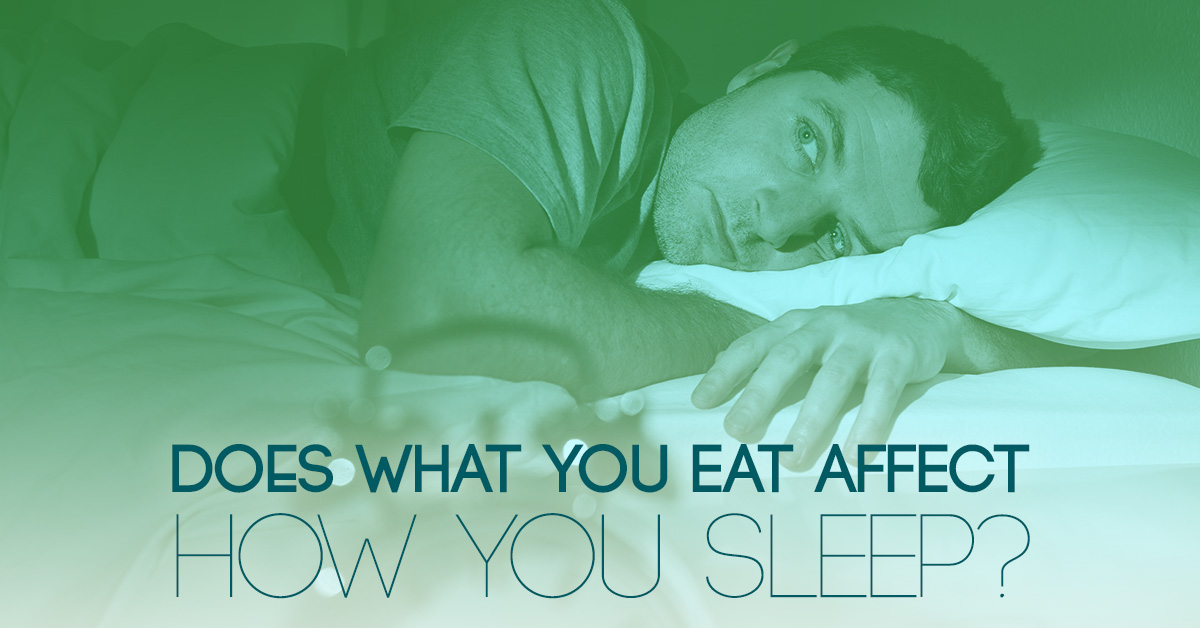Jan 23rd 2017
Does What You Eat Affect How You Sleep?

Could your diet be keeping you from getting a good night’s sleep?
Your dietary and sleep habits go hand in hand, and in our last blog, we discussed the ways in which sleep deprivation can ruin your diet. However, the opposite is also true. Not only does a lack of sleep affect what, when and how much you eat, your diet can also hinder your ability to get to sleep at night.
Getting enough sleep every night and eating a healthy diet are two very important parts of an overall healthy lifestyle, and when one is off, it affects the other in a number of ways. However, there is good news—when you start sleeping better, it can help you maintain a healthier diet, and when you start eating a healthier diet, it can help you sleep better at night!
How does your diet affect your ability to sleep?
In recent years, there have been several studies that point out the correlation between a poor diet and sleep troubles. One study that was conducted by researchers at the Perelman School of Medicine at the University of Pennsylvania investigated the connection between diet and sleep patterns, and another conducted by The American Academy of Sleep Medicine studied the connection between food choices and sleep. Here are a few of the key points from those studies.
#1. What you eat affects how long it takes you to fall asleep.
The participants who ate meals provided by a nutritionist, which consisted of an increase in protein and a decrease in saturated fats, were able to fall asleep faster—on average, they were asleep in 17 minutes to be exact. Participants who chose their own meals took almost twice as long to fall asleep—29 minutes.
#2. How much you eat affects how much you sleep.
People who eat more calories during the day, tend to the sleep the least amount of time, whereas people who sleep the longest, nine to 10 hours a night, tend to eat fewer calories throughout the day. People who sleep a normal amount each night, seven to eight hours, tend to eat a wider variety of foods.
#3. What you eat affects the quality of your sleep.
Diets that are low in fiber and high in sugar and saturated fat can lead to lighter sleep patterns, which means that these diets rob you of the restorative sleep your body needs. Saturated fats are energy producers, which hinders your slow wave sleep. Consuming a diet high in sugar can cause you to wake up more frequently during sleep as well.
#4. When you eat affects your ability to fall asleep.
Many people with late-night eating habits find themselves lying awake, unable to fall asleep. The energy you get from your food helps to propel you throughout the day, but when you eat late, it makes it difficult to fall asleep.
Your dietary and sleep patterns go hand in hand, but luckily, improving your sleep quality could help you eat a healthier diet. At CPAP Liquidators, we offer used CPAP machines that make it affordable to get the sleep apnea treatment you need to improve your sleep quality and, consequently, your eating habits. Shop with us today.
